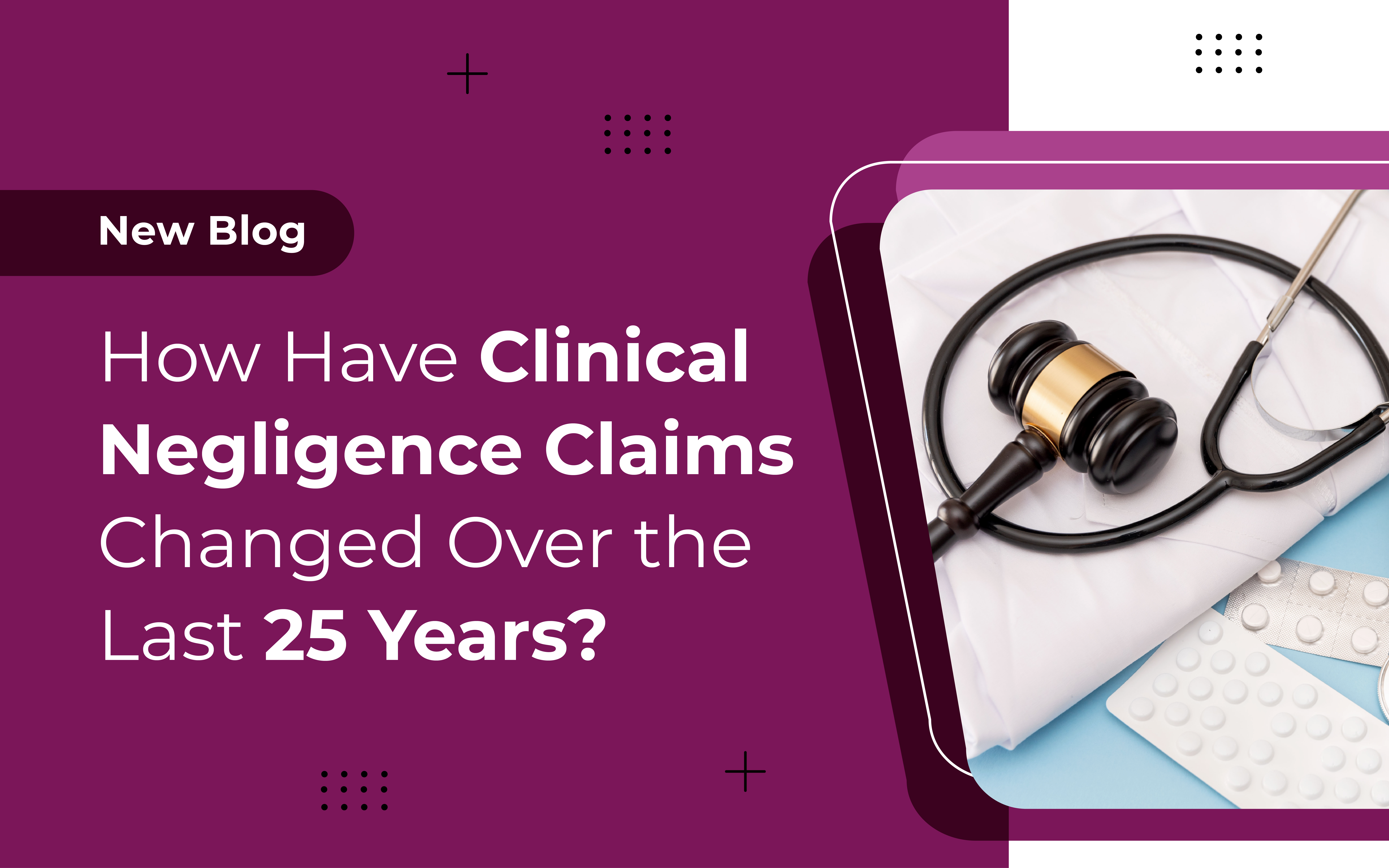
20 Aug 2025
How Have Clinical Negligence Claims Changed Over the Last 25 Years?
Over the past 25 years, the way clinical negligence claims are handled has evolved significantly, and while every case is unique, the fundamental process remains the same.
Once negligence is alleged, the team at Speed Medical are instructed to provide expert clinical advice on whether there has been a breach of duty, whether that breach caused injury and what the claimant’s prognosis is. Then, in a small proportion of cases, we may also arrange rehabilitation or treatment, though our primary role is to provide robust, independent medical evidence that supports legal decision-making and ensures each case is approached with clarity and fairness.
Yet, as the clinical negligence landscape continues to shift, we find ourselves constantly adapting to what’s needed, which is why we’ve drawn on our decades of experience to identify the impact these changes have had on the ways evidence is gathered, assessed, and presented.
-
Increased case complexity
Medical negligence claims have always required detailed analysis, but today’s cases are more likely to involve multiple layers of complexity, whether that be pre-existing conditions, overlapping symptoms or medical histories shaped by years of varied treatment.
An example of this could be a delayed cancer diagnosis claim, which may involve the assessment of several stages of investigation, treatment, and follow-up, all of which need to be examined against expected clinical standards.
As such, determining whether any departure from those standards caused harm often requires multiple expert opinions across different specialisms, and this complexity means reports must be comprehensive, evidence-based, and carefully reasoned, with a clear narrative that the court can follow.
-
Greater recognition of psychological impact
One of the most positive developments over the last 25 years is the increased recognition of the psychological effects of medical negligence, as historically, claims tended to focus on physical injuries such as surgical errors, misdiagnoses, or medication issues, with limited attention paid to the mental and emotional consequences.
Today, however, the psychological impact of negligent treatment is taken far more seriously. For example, where claimants may experience anxiety, depression, PTSD, or a loss of confidence in healthcare providers.
These effects can influence recovery, ability to work and overall quality of life, and they now form a more regular part of claim assessments, which in turn, has led to greater demand for expert psychological input alongside traditional medical reporting.
-
Ongoing NHS pressures
Long NHS waiting times are not new, but the scale of delays in recent years has been unprecedented, and they can influence the course of a case in several ways such as:
- Delaying the diagnosis of an injury or illness, making causation analysis more complex
- Leading to worsened outcomes that must be evaluated alongside the alleged negligence
Because of this, private treatment may be organised in some cases as part of the claim to prevent further deterioration, and while this happens in a relatively small proportion of cases, the option can be essential to ensuring claimants receive timely care and that legal teams have up-to-date medical information.
-
The legacy of COVID-19
The COVID-19 pandemic has had a lasting impact on healthcare systems and clinical negligence claims alike, and the disruption caused by lockdowns, diversion of resources and the suspension of many routine services have all shaped how claims are presented and defended.
As events were completely unpredictable, new claim types emerged quickly, such as those relating to mismanagement of COVID-related symptoms. What’s more, we now frequently see cases where COVID has interacted with other conditions such as respiratory conditions, which creates added layers of complexity around whether a claimant suffered negligence, already had underlying illnesses exacerbated by COVID-19, or both.
-
Advances in technology
The use of technology in the claims process has increased significantly over the past 25 years, with secure portals, video conferencing and digital case management systems streamlining many administrative aspects of clinical negligence work.
Today, we have virtual assessments, which allow claimants to be seen more quickly and conveniently, while also enabling access to experts who may not be based locally.
However, while technology can improve efficiency and service delivery, it does not replace the need for qualified clinical judgement, and the interpretation of medical records, examination findings and the application of legal tests to clinical scenarios still require experienced human input.
How Speed Medical has adapted to these changes...
Over the last 25 years, we’ve evolved alongside the claims environment, continually refining our processes and broadening our expertise.
We’ve expanded our panel to include a wider range of clinical and psychological specialisms, enabling us to meet the growing demand for multi-disciplinary input. We’ve trained our experts to address the increasingly complex causation questions seen in modern claims, including those shaped by the COVID-19 pandemic. And we’ve also invested in secure, efficient digital systems that make it easier for solicitors, insurers and other stakeholders to manage instructions, while retaining the personal, attentive service that has always been our hallmark.
Through every shift, our commitment to delivering independent, clinically robust reports has remained constant. And so, we can say with absolute confidence that whatever changes the next 25 years may bring, our commitment will continue to guide everything we do.
To find out more, speak to our expert team today by visiting www.speedmedical.com, contacting our team via email at info@speedmedical.com or calling us directly on 0330 094 8749.




